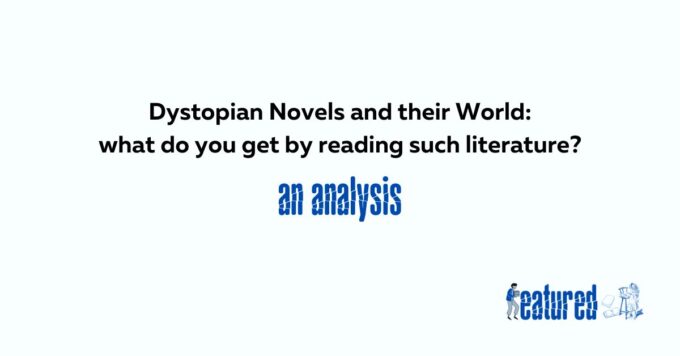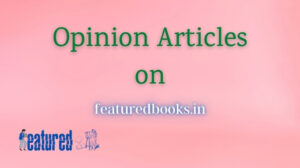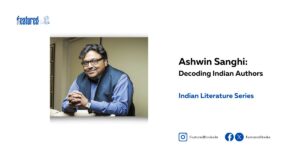Dystopian Literature, in a way, stops at being discussed as Dystopian novels. It is because the body of Dystopian literature consists of novels, mainly. As the electrifying darlings of the literary world, these novels captivate readers with their vivid portrayals of cataclysmic futures mostly born out of the fiery crucible of societal, political, and environmental upheavals. Most of the time, you will notice that haunting narratives, despair shrouding the landscape, tyranny tightening its suffocating grip around the characters, and violence coursing through the very veins of existence are the main highlights of such literature. Yet, amidst the harrowing depths, these novels, like celestial beacons in a sea of darkness, offer moments of enlightenment and opportunities for introspection, pulling us to ponder the essence of our humanity. What might have been if such was the case? What will happen if so and so happens in the near future? How can someone escape fate? There are. many thoughts remain lingering in our minds after reading Dystopian literature. As an ardent student of English literature, I have had the privilege to read a few of the countless dystopian classics. In doing so, I had the opportunity to unearth their profound ability to unravel intricate webs of social and political complexities. Though it is true that Dystopian novels are conceived in imagination and weaved with speculation as the thread, still, they serve as luminous torchbearers, casting light upon the perils of totalitarianism, the sanctity of personal liberties, and the fragility of our cherished Earth. Novelists who write Dystopian novels are often quality thinkers, philosophers and experts on human emotions and knowledgeable about what’s going around us. This gives them the opportunity to extract or impart whatever elements they like or dislike while building the perfect dystopia for their novels to prevail. Well, while we can debate and conjecture about the birth of Dystopian novels, it is for sure that through their timeless parables, these novels teach us that the future remains a mystery! Nevertheless, our future does depend on the choices we make. Do you agree?
What are the common themes and issues discussed in Dystopian novels?
There are certain themes and issues that recur in the novels of this genre. However, the treatment often varies. We can observe a few novels and (definitely) conclude that Dystopian novels serve as a powerful lens through which we may examine and dissect a myriad of critical issues (and speculations). First and foremost, the ominous spectre of totalitarianism looms large in these narratives. More than often, novels by Dystopian writers offer readers a portrayal of future societies shackled by oppressive regimes… and these regimes can be of various types – based on race, religion, class, gender, or economic measures. These regimes curtail personal liberties and crush dissent of any kind. Well, these regimes are man-made. However, there are also apocalyptic Dystopian novels that employ nature as the major force of havoc on humanity. These literary masterpieces delve into the perils of environmental degradation, vividly illustrating the catastrophic consequences of unchecked pollution and the relentless onslaught of climate change. People moving to Mars, settling underground, Alien invasion, Sun going rogue and burning everything down, planetary collapse, flood and deluge, a storm of fatal scale, and many other themes can pertain to nature-created Dystopia. Dystopian novels can also cast an unflinching gaze upon the grim realities of war and violence, portraying worlds ravaged by incessant conflict and illuminating the devastating toll inflicted upon humanity. Lastly, these haunting tales invite contemplation on the loss of individual identity, painting dystopian landscapes where conformity reigns supreme and the essence of one’s uniqueness teeters on the precipice of extinction. And therefore, a Dystopia may well reside inside someone’s heart and mind! More like J. D. Sallinger’s The Catcher in the Rye. Say whatever or argue from whichever side, Dystopian novels do bring an opportunity for readers (and society in general) to collectively ponder upon the possible future prospects – what if and then so many things to mull over!
Not interested in Dystopian literature? Here is a list of 6 Philosophical novels you must read
What are the benefits of reading Dystopian novels?
Well, on a lighter note, the immediate benefits are entertainment, well-earned and worth-spent me-time for hours, and some new things to learn (which is serious as well). Well, now discussing the advantages one can enjoy by reading Dystopian novels, there are many! Despite their dark themes and harrowing narrative, these novels provide several advantages for readers. Firstly, they shed light on real-world concerns (of tomorrow) like environmental decay, political corruption, and social inequality. These concerns may be from tomorrow but certainly loom over our heads from a not-so-high-in-the-sky distance. These novels almost announce what might be happening in the near future (or a distant one). Who can forget the 1984 horrors predicted by George Orwell? And thus, if you think, reading Dystopian novels aid our comprehension of these issues and their potential repercussions. Secondly, dystopian novels present intricate moral dilemmas, encouraging critical thinking as we analyze characters’ choices and ponder their implications. Lastly, they inspire us to envision a brighter future by demonstrating that hope endures even in the bleakest circumstances. To conclude this section, Dystopian novels can teach many lessons to readers about the choices we make in life and their probable consequences on us, others and the world.
List of some Dystopian novels you may enjoy reading:
- 1984 by George Orwell
- The Handmaid’s Tale by Margaret Atwood – read a detailed review and analysis here – The Handmaid’s Tale by Margaret Atwood
- The Hunger Games by Suzanne Collins
- Divergent by Veronica Roth
- The Maze Runner by James Dashner
Hope you liked reading this article and found it helpful (and enjoyable as well). On Featured Books, we aim at bringing many more such articles for our readers. Lists of books to read in various genres, analysis of genres and themes, trends in contemporary literature, book reviews, news and more. Keep reading, sharing, and visiting your literary platform! Happy reading!
By Alka for Featured Books




